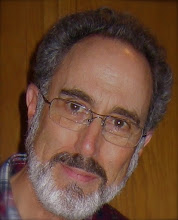I Cloned a Woolly Mammoth
I cloned a Woolly Mammoth
Using tissue from a fossil
Fully formed and found
Frozen in the Lappish tundra
I merged a cell from the mammoth’s tongue
With the de-nucleated egg from a pigeon
And fused the two in a Petri dish
Hand-painted by a monk
The monk paints dinner plates
As well as laboratory dishes
And lives a frugal life
On the arid plains of the Mahabharata
In that the tongue had been frozen
For some fifteen thousand years
I was reluctant to insert the growing embryo
In the surrogate mammoth mother
I’d chosen an African Elephant by the name of Molly
To carry the embryonically infused egg
And had become so attached to Molly
That I was loath to see her chilled
And so rather than implant the egg
I separated stem cells for the embryo
Then fused these embryonic stem cells
To an enucleated mouse egg
Then I implanted the enucleated mouse egg
In Molly my surrogate mammoth mother
And waited while she meandered about my farm
Eating tons and tons of bamboo
The monk doesn’t have a name
Names inhibit separation from the ego
And so the Petri dish was simply signed
‘Monk’
Six hundred and forty-four days later
Molly stopped eating and simply stood
Staring off towards the mountains
When she started to slowly sway
I knew then that she was about to give birth
I watched as Molly swayed and squatted
Then exclaimed in awe as
Forty pigeons flew off looking for cheese
But doesn’t signing the Petri dish signify attachment to the ego?
This is something I’ve wondered about
___________________________________
According to James Clapper, former U.S. director of national intelligence, gene editing is a “weapon of mass destruction and proliferation.” Clapper was reporting on the U.S. Intelligence Community’s Worldwide Threat Assessment of 2016. Genome Editing, under the section on Weapons of Mass Destruction and Proliferation, states that, Research in genome editing conducted by countries with different regulatory or ethical standards than those of Western countries probably increases the risk of the creation of potentially harmful biological agents or products. Given the broad distribution, low cost, and accelerated pace of development of this dual-use technology, its deliberate or unintentional misuse might lead to far-reaching economic and national security implications. Advances in genome editing in 2015 have compelled groups of high-profile US and European biologists to question unregulated editing of the human germline(cells that are relevant for reproduction), which might create inheritable genetic changes. Nevertheless, researchers will probably continue to encounter challenges to achieve the desired outcome of their genome modifications, in part because of the technical limitations that are inherent in available genome editing systems.
The first known attempt at creating genetically modified human embryos in the United States was carried out in 2017 by a team of researchers in Portland, Oregon led by Shoukhrat Mitalipov of Oregon Health and Science University, and involved changing the DNA of a large number of one-cell embryos with the gene-editing technique CRISPR. Until the Portland study, scientists elsewhere were first to explore the controversial practice. Up until then, three previous reports of editing human embryos were all published by scientists in China.
According to Stephen Buranyi, in NYR Daily,
"If CRISPR has an agreed-upon red line, it is human germline editing (which, in effect, entails editing human embryos to create babies that will carry the edits in all of their cells, and will pass the changes on to any offspring they have). That line was crossed in November at the Second International Summit on Human Genome Editing in Hong Kong, when a relatively unknown Chinese scientist named He Jiankui announced that he had introduced genetic changes in at least two human embryos that were carried to term, meaning that the first two gene-edited humans in history—twins, as it happens—exist somewhere in China."
Buranyi wrote that, "When the journal Science chose the radical gene-editing technology CRISPR as its 2015 breakthrough of the year, the editorial team closed its description on a dire note. 'For better or worse, we all now live in CRISPR’s world.'”





